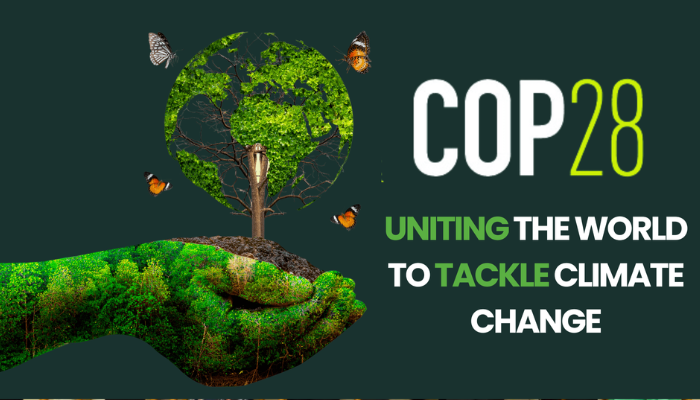COP28: Challenges and Economic Dynamics in Africa

Agencies- Sudan Events
As COP28 unfolds, African economies grapple with the complexities of climate change. Nancy Githaiga, Country Director of the African Wildlife Foundation, sheds light on Africa’s victories, emphasizing the groundbreaking agreement on the loss and damage fund—a crucial step forward. Githaiga underscores the importance of acknowledging the impact of climate change on Africa’s justice and the continent’s potential to contribute innovative solutions.
The discussion turns to Africa’s responsibility in leading the transition to a low-carbon future. Githaiga highlights Africa’s unique position, emphasizing biodiversity as both a victim and a potential solution to climate change. With a quarter of the world’s population projected to be African by 2050, Githaiga emphasizes the continent’s youth and market potential, presenting opportunities for innovative solutions and a distinct growth trajectory.
Addressing concerns about economic exploitation of fossil fuels, Githaiga argues against merely transferring the problem elsewhere. Instead, she advocates for those who have benefited from fossil fuels to invest in green energy globally. Emphasizing the importance of achieving the same level of development through renewable energies, Githaiga sees this as beneficial not only for Africa but for the entire world.
Shifting focus to Kenya, a World Bank report predicts substantial economic losses by 2050 due to climate change impacts. The pursuit of sustainable development becomes a formidable task as Kenya strives to balance environmental responsibility and market competitiveness with limited resources.
In the Democratic Republic of Congo (DRC), economic challenges persist as President Felix Tshisekedi seeks re-election, promising job creation. Despite a first term marked by economic growth, the DRC faces hurdles on the path to sustained development, with rising unemployment and inflation levels in the run-up to elections.
In conclusion, Business Africa presents a comprehensive overview of the continent’s response to COP28 challenges, emphasizing the need for global collaboration and sustainable solutions to address the multifaceted economic impacts of climate change in Africa.
Concerning Climate Change, Africa’s Sahel region is bearing the brunt of the devastating consequences of climate change. Women, particularly in rural areas, find themselves in a vulnerable position, and approximately 77% of Sahelian women believe climate change negatively impacts their lives.[1] This startling statistic highlights the urgency of addressing women’s concerns over the climate emergency and the need to better integrate gender equality considerations into climate policies. Women represent almost 50% of the agricultural sector workforce.
It is a fact that the world will become warmer in the coming decade, by at least1.5 degrees Celsius. Like elsewhere, African countries are seized with limiting this warming to arrest extreme weather disasters, which have become increasingly frequent on the continent. According to a report from the Brookings Institution, future carbon emissions are likely to arise because of the high-carbon energy infrastructure that is already available and more affordable. In African economies, where economic growth is urgently needed and expected, it will be very hard to meet global climate targets if…
Financing adaptation and resilience to climate change: why it matters After two hurricanes hit Honduras in as many weeks, let us pause to think about how climate change is impacting humans all around the world. Disasters destroy people’s assets, consume their resources and push families into poverty and trap them there. These impacts fall disproportionately on women and girls whose quality of life suffers as the surrounding environment deteriorates. Poor people have fewer choices and must rely more heavily on the Earth’s natural resources.



